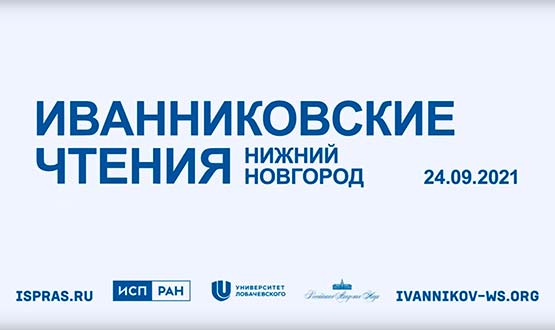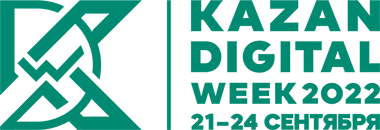Live streaming (09:30)
About the Workshop
The Workshop is devoted to the development of innovative technologies in system programming, which serve as a basis for modern IT industry.
Three sections:
- Program analysis, modeling and transformation technologies
- Data management and information systems
Two roundtables:
- Digital medicine
- Secure software development: competencies, community, certification
The Workshop is dedicated to the memory of outstanding Soviet and Russian scientist and developer, Academician Victor Ivannikov, who founded the Institute for System Programming (ISP RAS) in 1994. The Workshop is organized with support of IEEE.
To present your research at Ivannikov Memorial Workshop please submit a paper, that was neither published nor submitted for other conferences. We accept original materials containing the results of research or describing the work in progress. We invite both researchers and practitioners.
All the materials are accepted in English or in Russian via EasyChair
Participation in the conference and publication of articles are free of charge. Travel and accommodation, as well as other expenses are to be paid by the participant.
Deadlines:
- Materials submission: August 26, 2022 (23:59, GMT+3).
- Notification of acceptance: September 5, 2022 (23:59, GMT+3).
- Camera ready copies: September 18, 2022.
- Participants registration: September 18, 2022.
Program analysis, modeling and transformation technologies
The section is devoted to applying program analysis techniques in a security development lifecycle and covers a wide range of topics related to software development and deployment as well as to standards and certification. Also the section is devoted to methods, architectures and components of modern operating systems for reliable and efficient computing and control systems. The topics include:
- Binary (executable) code reverse engineering.
- Program execution in controlled environment.
- Vulnerability search in executable code.
- Network traffic analysis.
- Compiler optimization and code generation.
- Program static and dynamic analysis.
- Program analysis and testing methods and tools.
- Security and privacy in operating systems.
- Development lifecycle: standards and certification.
- Real-time operating systems, Internet of Things (IoT).
- Network stacks and technologies.
- Kernels and OS architectures.
Data management and information systems
The section is devoted to data management and data analysis (methods and systems for storing and analyzing large volumes of text, graph, multimedia, scientific and other types of data). The topics include:
- Data mining and information extraction.
- Mathematical theory and methods of machine learning and artificial intelligence.
- Mathematical models of processes and phenomena of the real world.
- Computational linguistics, natural language text analysis and understanding.
- Complex networks analysis, including social, communication, biological networks, etc.
- Signal processing and image analysis.
- User-generated content analysis.
- Information retrieval, recommender systems.
- Ontologies and knowledge bases.
- Information systems and technologies.
- Scalable algorithms for data analysis.
- Data analysis applications.
- Data cleaning, heterogeneous data integration, data deduplication.
- Key technologies for private and hybrid clouds creation.
- High-performance computing and other services in clouds.
- Big data ecosystem.
- Distributed databases and Data/Web Mining technologies.
- Software platforms for internet of things.
- Dynamic load balancing in elastic clouds.
- Planning of task flow in cloud data processing centers.
- Power-saving cloud infrastructures.
Digital medicine
The roundtable is devoted to theory and practice of digital transformation in medicine and healthcare and brings together medical experts discussing digital healthcare tasks and providing their requests to IT developers. The topics include:
- Big data processing in various medical fields.
- Digital healthcare and big data.
- Artificial intelligence and machine learning approaches for medical problems and managing healthcare solutions.
- Organizing data workflow between medical institutions and IT organizations.
Secure software development: competencies, community, certification
The roundtable is devoted to applying program analysis techniques in a security development lifecycle and covers a wide range of topics related to software development and deployment as well as to standards and certification.
Event Schedule
Programme Committee
- Arutyun Avetisyan, Academician of RAS, ISP RAS Director.
- Igor Petrov, Corresponding member of RAS, Head of the MIPT Department of Informatics and Computational Mathematics.
- Andrey Tchernykh, Dr. Sci., Professor, CICESE Research Center, Mexico.
- Ivan Arzhantsev, Dr. Sci., Dean of the Faculty of Computer Science, HSE.
- Andrei Raigorodskii, Dr. Sci., Director of Phystech School of Applied Mathematics and Informatics, MIPT.
- Sergey Prokhorov, Ph.D., chair of IEEE Computer Science Russian chapter.
- Petrenko Aleksander, Prof., Head of Software Engineering Department (ISP RAS).
- Andrey Belevantsev, Dr. Sci., Head of Program Analysis and Optimization Team (ISP RAS).
- Vartan Padaryan, Ph.D., Head of Binary Reverse Engineering Team (ISP RAS).
- Oleg Samovarov, Ph.D., Scientific Secretary (ISP RAS).
- Denis Turdakov, Ph.D., Head of Information Systems Department (ISP RAS).
- Alexey Khoroshilov, Ph.D., Director of Linux verification center (ISP RAS).
Registration
Paticipation in the conference and publication of articles are free of charge. Travel and accommodation, as well as other expenses are to be paid by the participant.
The venue may be changed due to the epidemiological situation; the Conference may take place online.
Contact us via e-mail scsec@ispras.ru to get instructions.
Submission
The papers should be 3 to 7 pages long. The workshop proceedings will be published online and indexed in Web of Science и Scopus. Peer review is double-blind. Please remove any references to authors (such as names, affiliations or e-mails) from submitted articles, as well as direct references to previous works. In case of successful review and acceptance you will be requested to submit camera-ready text with necessary author details.
Submission is open at EasyChair.
Submissions that violate these guidelines will be rejected.
Contacts
E-mail and phone
You may contact us by e-mail
Venue address
Kazan Expo International Exhibition Center. Bolshie Kabany, Vystavochnaya Street, 1 (near Kazan Airport).
Details
The Workshop is held from 9:00 to 18:00.





